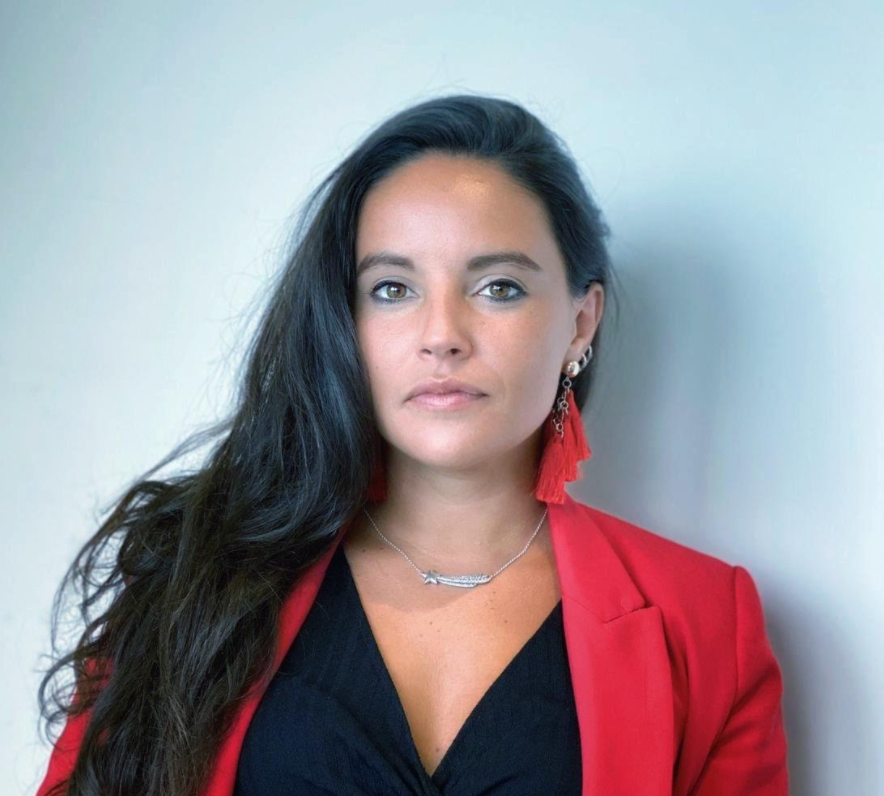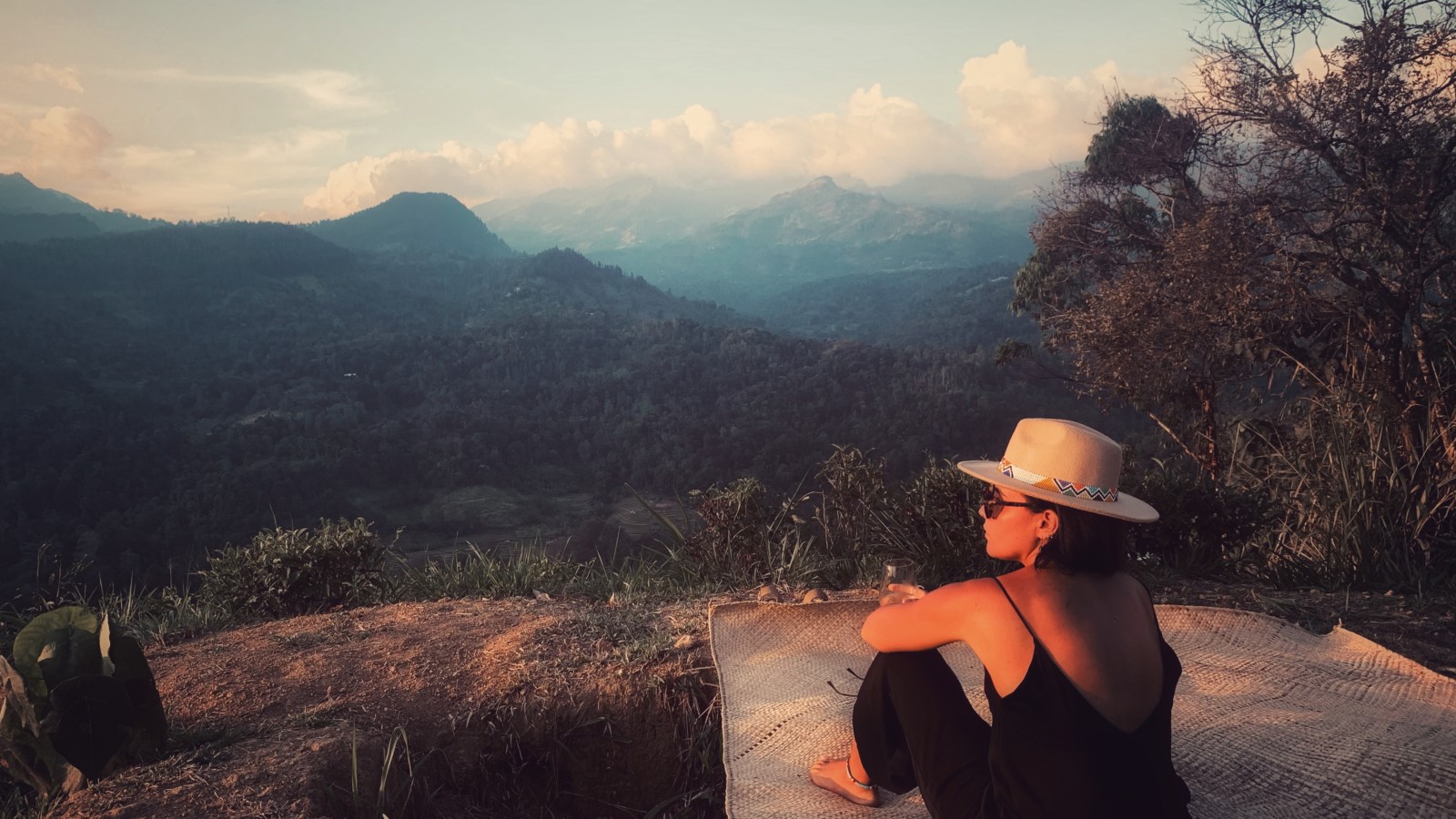Eight months ago I embarked on a six month sabbatical. Seven months ago, I joined Walking on Earth. It may sound like a maths puzzle but this one is actually a story.
The story begins 3 decades ago and spans 28 years spent in a perennial search for validation through achievement. I played six instruments as a child, performing on global stages from St Paul’s Cathedral to the Shanghai Conservatoire. I went to Oxford, twice, where I was awarded an academic scholarship and a prize for outstanding academic excellence. I turned my hat to endurance sports and came second in my first ever Ironman race. Alongside the 5:30am starts and training twice a day, I was working 80 hours a week, having achieved my first executive position at 25 and my first board position at 27. I liked my compliments in the form of ‘You’re crazy’ or ‘I don’t know how you do it’.
In March 2020, on a work trip to Australia and the Middle East, I acquired what I first thought was a sinus infection, then labelled a gastric incident, and finally (through the loss of taste and smell), realised was in fact Covid-19. I’d never felt that ill in my life but 2 weeks later I was back to training twice a day, aiming to race 2020km in 2020 for charity.
If 2020 was the number I was aiming for, my 2020-1 in numbers reads a little differently. 611 is the number of days I’ve had symptoms for; 300 is the maximum my heart rate hit; 82 is the lowest my oxygen sats went. 63 is the number of Long Covid symptoms I’ve had; 11 is the number of pills I’ve been prescribed; 7 is the number of doctors who gaslit me; 5 is the number of hospital stints I’ve had; 3 is the number of life threatening adverse drug reactions I’ve suffered.
If this seems like a story of loss, that’s certainly in there. What did I lose, alongside copious amounts of my hair? My identity as young, fit, and able. My coping mechanisms – achieving, exercising. The ability to stand up, talk or walk (especially up stairs). The ability to eat normally, drink coffee or alcohol, tolerate heat, cold, changes in temperature or any stress whatsoever.
But this is also a story of gain, growth and gratitude. What did I gain, alongside 2.5 stone and my 11 pill strong prescription list? An exciting array of letters to put to my name (not the acronyms your mother wants you to get): MCAS, POTS, PTSD. Some less catchy words too – dysautonomia, myopericarditis, post-exertional malaise. Quips aside, I gained a profound sense of what I want my life to look like: what I value, what my red lines are. What I will give and what I won’t. Debilitating illness can be the ultimate lesson in slowing down, in mindfulness – some times a slowly sipped cup of tea really is the highlight of your day. I have gained a deep understanding of the mind-body-spirit connection and a resonant understanding of trauma, what it is, what it does when it remains unprocessed. I am immensely grateful for so many things; for a partner that has quite literally picked me up off the floor, for loving friends, family and supportive colleagues. For being able to advocate for myself, for being able to digest medical papers. For having the access to world leading medical specialists who have listened to me and supported me throughout this.
But I am particularly grateful for the ability to recognise the limits of conventional Western medicine which, whilst it excels at life saving surgery, at trauma resolution, at cutting edge scientific advances, falls so short with regards to many chronic conditions. In part that is due to the nascent nature of these conditions; modern medicine has (largely) triumphed in its historic focus on infectious and acute conditions, contributing to an almost doubling of the global average life expectancy since 1900. But what is quantity without quality ? Chronic diseases are a tsunami estimated to cost the global economy $47trn over the next two decades, killing twice as many people as infectious diseases. They already account for 80% of health care costs in the US, and are fast increasing in developing countries who are losing their traditional ways of life in favour of fast food and more sedentary existences.
When these diseases arise we operate in a realm of symptom suppression, rarely root cause diagnosis and even more rarely, cure. Such symptom suppression comes in the recommended form of pharmacological interventions which can bring more symptoms than they solve. For all scientific rigour is built around controlling variables, many treatments today still involve protocols modelled on the ‘Reference Man’, the standard human used in research on drugs who is a white man in his 30s, around 70kg, thus negating variables relating to size, age, gender, activity level, genetics or environment. As Caroline Criado Perez compellingly explores in ‘Invisible Women’, the results can be catastrophic: from women being 50% more likely to be misdiagnosed after a heart attack, to crashing cars whilst on the sleeping pill Ambien because the dose was too high – they were found to be metabolising the active ingredient twice as slowly as men.
Having lain in a bed surrounded by half a dozen medical professionals whilst suffering from an adverse drug reaction on more than one occasion, I know just how high the costs can be; these ADRs are the fourth leading cause of death in the US and Canada. I also know that these drugs give many people back their lives or their loved ones and I am still dependent on pharmaceuticals every day. But my biggest breakthrough has been in marrying modern science with ancient wisdom, forming a personalised and holistic approach to health that encompasses mind, body, spirit and environment. I practice yoga, breathwork and meditation daily. I have studied Ayurveda and Traditional Chinese Medicine and I have acupuncture, CST and psychotherapy weekly. I have taken the time to test and understand my unique combinations of epigenetics, environmental toxins, deficiencies and excesses. I use wearables, biometrics and biomarkers to make data based decisions. I have abandoned catchall diets for testing and learning what dietary methods work for me. I have had my body mapped on a cellular level, painting a picture far deeper than the blood tests you get in A&E can; the conclusion ? Quantum medicine is truly mind blowing. The common thread between these practices is the constant amazement for the power of that which helps my body do what it does best; heal itself.
Integrative and functional medicine are beginning to get the awareness the fields deserve due to the work of pioneers such as Jeffrey Bland, Mark Hyman and many others. Institutions like the Memorial Sloan Kettering Cancer Centre are proving that modern medicine and alternative therapies can go hand in hand; it may be the oldest private cancer centre in the world but its methods are far from outdated. Alongside chemotherapy, surgery and radiation, they offer personalised plans focused on mind-body therapies ranging from acupuncture, aromatherapy, visualisations, meditation, Qigong, Tai chi and yoga. It shouldn’t take getting such a devastating condition to incorporate these practices but another of our modern paradoxes of progress is that the upstream, preventative solutions are the least explored, the least funded, and the most impactful (I highly recommend Dan Heath’s work on the topic for further reading). It’s much harder to track how many heart attacks are prevented than it is to track how many people are saved from heart attacks when they present at hospitals.
I am still rolling the dice in the game of snakes and ladders that is chronic illness but I am better now than I was 3 months ago and the good days are increasing. The facts are unclear as to what causes Long Covid and I certainly make no claims on understanding this myself. But what I do know is that had I not been so burnt out, had I not pushed myself through recovery, had I realised my metrics were all about fitness and not about health, I would not have got so sick. I also know that had I not taken a holistic and personalised approach to my recovery, I would be 100 steps behind where I am now.
So to come full circle: why Walking on Earth? I have lived the problem we are solving: the stress epidemic, and I have lived the solution we are offering: personalised and holistic health and I have lived the premise we exist on: that the future of health is preventative.
My lived experience is one tiny grain of sand in the colossal stress epidemic. Its impact is devastating and only beginning to be seen: as a chronic problem that is thought to contribute to the six leading causes of death, the full scale of its impact will only be revealed in time. At Walking on Earth, our first step in tackling this challenge is to take on workplace stress: in America alone it is a problem that affects 83% of US workers causing $300bn in losses annually. We know stress at work is merely one source of stress in our hectic modern lives, but the skills we are teaching people are transferable to any situation. We take people on a journey from information to transformation, starting with a personal health consultation that then provides a personalised plan encompassing fireside chats with top scientists and academics, virtual classes and 1:1s with highly vetted leading experts, and performance based analytics over time. Whilst employees work on their holistic health, their employer can benefit from reductions in absenteeism, as well as increases in performance and talent acquisition and retention. We believe in building the workplaces of the future, where work improves peoples’ lives, rather than shortens them. We have to drink our own champagne kombucha and that starts with building the best company that walks this earth; a mission that excites me hugely. And the vision ? We want to transform the way we view health, building an AI-powered health coach that guides humans to make the choices that will result in a higher life quality, for longer.
The last two years have taught me neither to take the present for granted, nor to live for the future, whilst showing me my calling: for me Walking on Earth is not about a job, or a career, it really is this calling.


